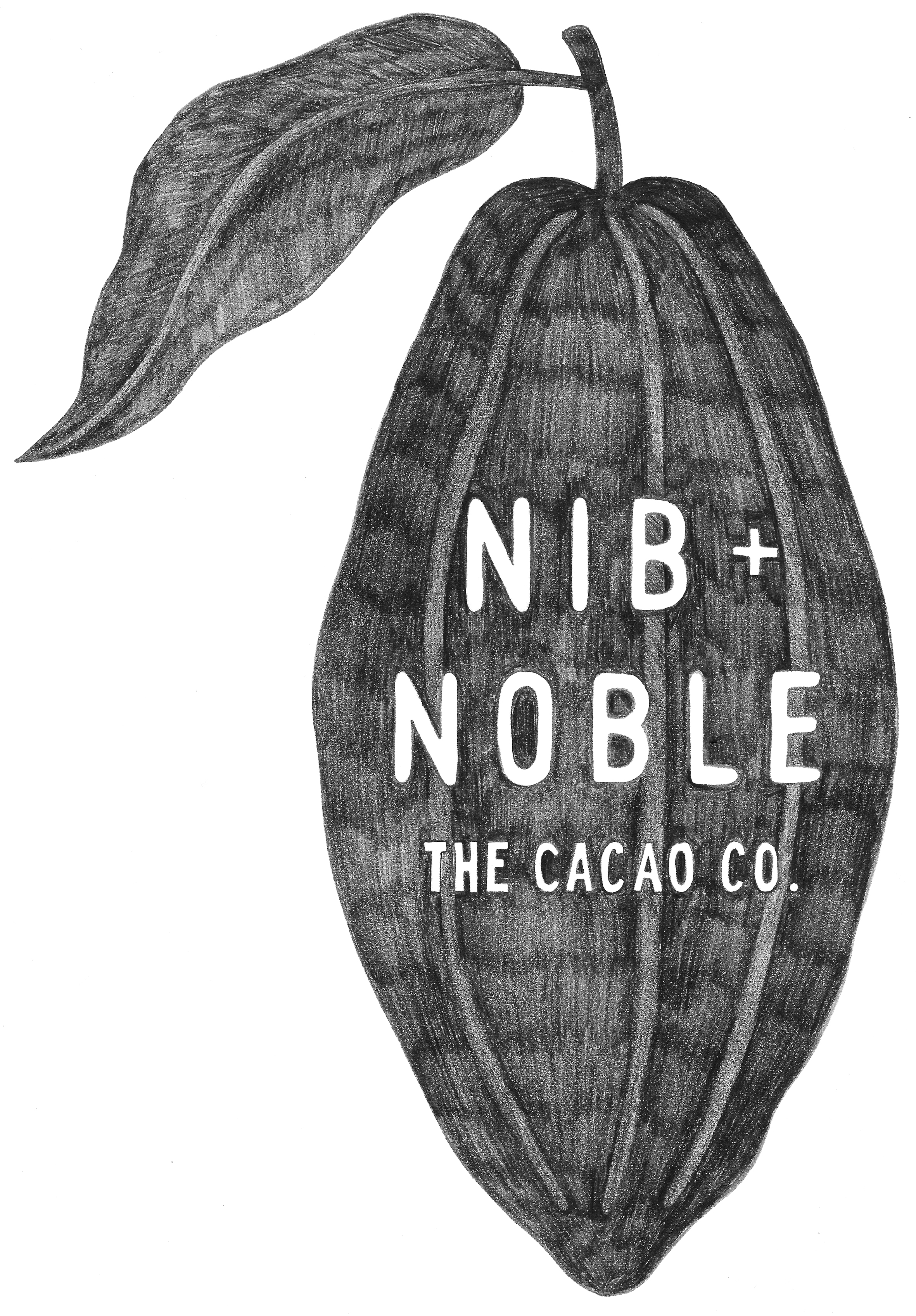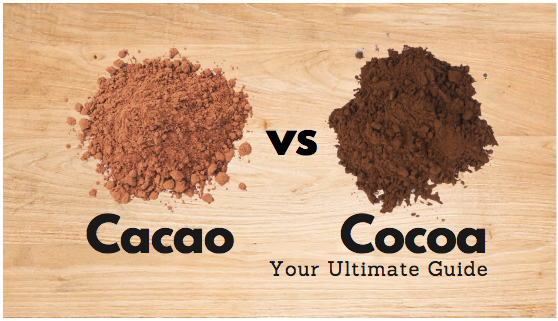When you are looking at hot chocolates and other chocolate-based products from a health perspective, it is important to take into account whether the product has been made from raw cacao or cocoa powder. Although the two products share the same origin, the resulting products (because of the way they are processed) are vastly different in terms of taste, nutritional benefits, and quality.
The difference between cocoa vs cacao
Cacao is raw which means that it has not been heat treated. It is made by fermenting (similar to coffee) and pressing unroasted cacao beans, therefore its nutritional benefits are still intact. Because of the minimal heat used in the processing of cacao powder, it retains its natural light brown colour and original flavor profile, tasting darker and more bitter than cocoa.
Cocoa on the other hand is the end result of cacao which has been heat treated by being roasted at high temperatures. This process removes all the fat (cocoa butter), which is what changes its colour to a much darker brown (the darker the cocoa powder, the more heat treating sessions), and it is stripped of its original nutrients. It also has a milder, less bitter and slightly sweeter flavor compared to cacao.
Many products on the market may label their packaging with the word cacao as a means to make use of the traditional wording, however they can sometimes use cocoa instead so be sure to ask, or check that the colour of the cacao is light brown.

Cacao Health Benefits
The health benefits of cacao are vast and include:
- A high antioxidant status – cacao is packed with antioxidants which help to protect your cells against damage by free radicals, slowing the ageing process.
- Boosts cognition and lifts the mood due to its main flavonoid epicatechin.
- Its flavanols reduce blood pressure and improve blood vessel function.
- Lowers insulin resistance due to its epicatechin content, improving insulin signaling and modulating glucose production.
- Protects the heart due to its high flavanol content and antioxidant activity.
Because cocoa is cacao which has been put through the process of being roasted at high temperatures it contains none of the health benefits listed above.
Cacao Nutritional Information
Cacao is rich in nutrients and is a source of:
- Magnesium
- Cacao is one of the highest food sources of magnesium. Magnesium is an essential alkalising mineral, it benefits the musculoskeletal system (relaxing our muscles), benefits the nervous system (calming), builds strong bones.
- Iron
- Cacao is a source of iron. Iron is essential for healthy oxygen levels in the blood.
- Calcium
- Your body needs calcium to build and maintain strong bones. Your body also need calcium to help function properly.
- Phenethylamine
- Phenethylamine (PEA) is found in abundance in cacao playing a role an increasing focus and alertness. PEA is the adrenal-related chemical that we produce in our bodies when we fall in love. This is likely one of the main reasons why love and chocolate have such a deep connection.
- Zinc
- Zinc plays a critical role in immune system function, enzyme function, liver, pancreas, and skin health.
- Copper
- Copper belongs among essential trace minerals group. In the body copper is essential component of many enzymes crucial for iron metabolism and enzymes which are involved in antioxidant mechanism.
- Manganese
- Manganese assists iron in the oxygenation of the blood and formation of haemoglobin, the formation of connective tissue, bones, hormonal production.


How to use cacao powder
You can simply replace cocoa with raw cacao for any chocolate based dessert or treat as we do in all Nib and Noble Recipes.
As cacao is more bitter than cocoa, you may need to alter the amount of sweetener you use in your recipe. You can also add a little bit of salt which will help reduce the bitterness.
Nib and Noble uses only raw cacao in our product range, so when you buy a Nib and Noble product you can be assured that you are getting the best quality raw cacao powder that money can buy, packed with so many health benefits and nutrients.
References
- Ki Won Lee et al. Cocoa has more phenolic phytochemicals and a higher antioxidant capacity than teas and red wine. Journal of Agricultural and Food Chemistry 2003, 51, 7292 – 7295
- The neuroprotective effects of cocoa flavanol and its influence on cognitive performance. British Journal of Clinical Pharmacology 2013 March; 75(3):716-727.
- Cocoa flavanols lower blood pressure and increase blood vessel function in healthy people. University Hospital Dusseldorf, September 10 2015.
- Kris-Etherton PM, Keen CL. Evidence that the antioxidant flavonoids in tea and cocoa are beneficial for cardiovascular health. PubMed, 2002 Feb;13(1):41-9.





